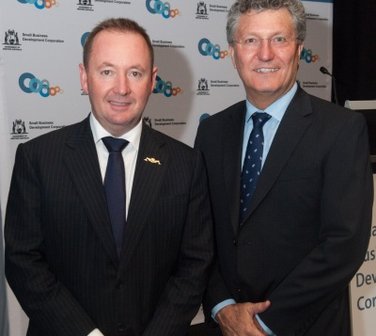Career change an option
It’s a good time for people considering a career change to take the plunge, say career coaches, as a more fluid jobs market means more people than ever can chase their employment dreams.
Better access to education and training programs, along with flexible working arrangements and an erosion of workplace loyalty, means employees have more power over their work futures, they report.
However, careful planning and a proper examination of their reasons for wanting to change professions in the first place were paramount in making a successful transition.
Rebecca Fraser, career coach and executive member of the Career Development Association of Australia, said people were turning their minds to switching careers as traditionally strong industries such as automotive, mining and manufacturing were evolving quickly, with some positions becoming obsolete.
“People who are in their forties have been working for around 25 years, so they are only halfway through their working lives, ” Ms Fraser said.
“There’s plenty of time for them to make changes and even to pursue the job they once dreamt of. So many of the decisions we make when we start our working lives are based on our school results, or what our parents might have wanted for us.”
Ms Fraser said modern employers were often looking for people with a particular set of skills — while education was important, they were more interested in dynamic people who could bring innovation and a fresh set of eyes into their business.
“Many workers are still in that mentality that they should have a job for life as their parents did but the career landscape is changing towards portfolio-style careers where people have several different employer-clients and offer services to all of them.
“A lot of people don’t take the time to really analyse the skills they have gained along the way — they are often surprised by what they can offer other industries.”
But job seekers need to be clear about what they want and to consider their family, lifestyle and financial needs before making permanent changes.
Kelly Services State manager Kurt Gillam said technology had impacted not just the way that employees did their jobs but also how they competed for new positions, and having a social media presence was crucial in maximising new opportunities.
“Sites like LinkedIn are essentially an online CV and employers look closely at these. If you don’t have a social media profile, it’s important to get one and make sure it’s up-to-date and professional, ” Mr Gillam said.
Mr Gillam said candidates would often seek their own training independently, which showed initiative, but it was important to seek professional career advice in pinpointing strengths and weaknesses, and whether a career change was advisable in the first place.
“When you examine your current job, if you’re not enjoying the parts of your role that relate to culture and personalities, then you may just need to switch companies, ” he said. “If you’re not enjoying tasks that are job-specific, and the role doesn’t challenge or excite you anymore, then changing companies may just bring you back to the same spot after a few months.”
Careers that were projected to continue to generate jobs well into the future included health and aged care, education and new technology, while sales and marketing was a dynamic industry that offered a wealth of new opportunities, he said.
© The West Australian
For more on Business and Employment: thewest/business.com.au









